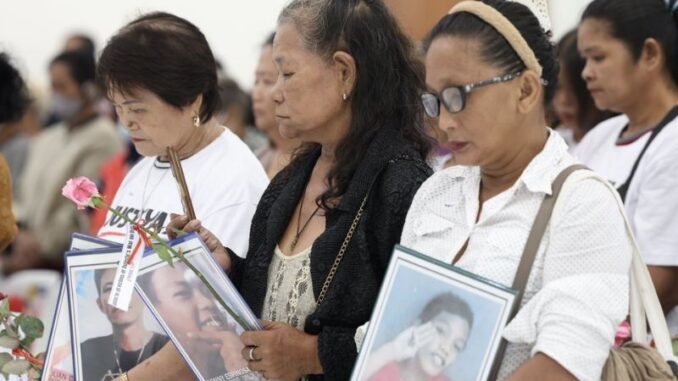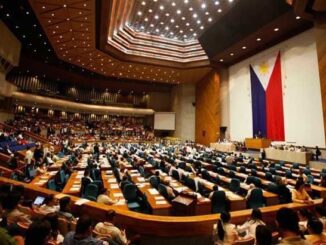
MANILA, Philippines — Families of extrajudicial killing (EJK) victims are turning to the International Criminal Court (ICC) in their pursuit of justice, as filing cases in the country has proven to be difficult, a human rights lawyer said.
Speaking at the House quadcom’s eighth public hearing on October 11, Neri Colmenares, one of the legal counsels representing EJK victims, said the ICC case offers a path to justice with the court’s extensive collection of documents since 2017.
“There is currently a case in the ICC, and in this case, the investigation has gained traction because it started way back in 2017-2018. So they have been gathering a lot of documents for a long time, and therefore, for the victims, this is one way for them to achieve justice,” Colmenares said in a mix of English and Filipino.
He explained that pursuing legal action within the country is challenging due to the lack of sufficient evidence to prove that the individuals killed during police drug operations were EJK victims.
Why is it difficult? Colmenares attributed this to the lack of CCTV footage, police reports and investigations. Even the victims’ death certificates, he said, fail to indicate gunshot wounds as the cause of death, citing an illness instead.
“How can you file a case when the death certificate says bronchopneumonia? How can you file charges when the CCTV cameras were turned off? You’re left relying solely on the word of the police team that entered the jail,” he said in Filipino.
The lawyer also mentioned that holding police officers accountable for the killings is insufficient, as “there is also the infrastructure of impunity.”
“Under the ICC’s rules of engagement, it is clearly stated that there should be an inquest for every death that occurs during police operations. They never conducted the inquest,” Colmenares said in Filipino.
What are the rules of engagement? The rules of engagement serve as guidelines for law enforcement officers to ensure their operations, including the use of force and engagement with suspects, adhere to legal and ethical standards.
They also outline how police officers should report and document these incidents to maintain accountability and transparency.
“So, when you ask them how many died in your territory during your tenure, they will provide the numbers, but if you ask whether an investigation was conducted, the answer is no,” the human rights lawyer said in Filipino.
Colmenares said that perpetrators would also frequently claim that the killing of suspected individuals was done in “self-defense.”
Families left without support. In addition to the fear that families of EJK victims carry, knowing that the former president orchestrated the war on drugs, Colmenares said they have also been left without a means to file charges against authorities.
“We have a significant problem right now because the families have not been provided with the important documents needed to file a case for a long time,” he said in Filipino.
“Many witnesses are also afraid, and therefore it is very difficult to file a case here in the Philippines, primarily because the evidence is not forthcoming,” he added.
According to a victim’s family member who testified at the hearing, they are also hesitant to bring the case to court because “the law is not on our side.”
Rep. Arlene Brosas (Gabriela Women’s Party) urged President Ferdinand Marcos Jr. to cooperate with the ICC trial, stating that “it is about time,” as more families of EJK victims are coming forward seeking justice and support.
“Otherwise, we can also accuse the Marcos administration of human rights violations if justice is not served for the victims,” she added.
Colmenares also emphasized that the mega-panel should continue its investigation into drug-related EJKs, as it gave families “a sense of hope” by allowing them to share their personal experiences of losing loved ones to the drug war.
Kristina Conti, another legal counsel representing EJK victims before the ICC, told lawmakers that the court is seeking additional witnesses to corroborate testimonies identifying those responsible for the killings, before holding the key figures accountable.
She added the ICC estimates the number of EJKs to be between 12,000 and 30,000.
The House quadcom has been tying together names of public officials potentially involved in the Duterte administration’s drug war.
These include retired police chief Royina Garma, former National Police Commissioner Edilberto Leonardo, Sen. Ronald “Bato” Dela Rosa, Sen. Bong Go and other police officers.





Be the first to comment